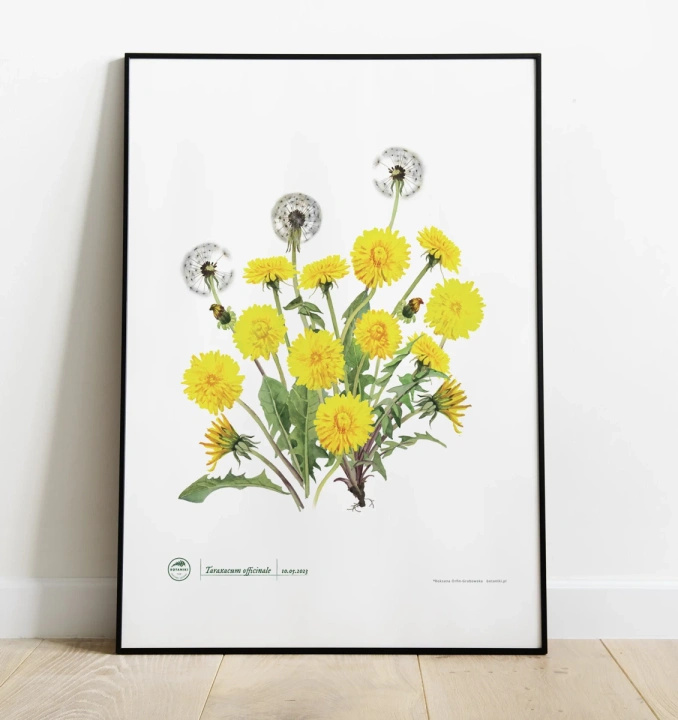Dandelion — poster
- Poster measuring 32 x 45 cm printed on snow-white 250 g coated paper. When framed in an antique or classic frame with passepartout it will beautifully decorate your interior. Packed flat - no unrolling required.
Subscription products in your shopping cart
Set one delivery frequency for all subscription products in your cart every:
Subscription products in your shopping cart

The natural beauty of plants suitable for any room
The poster is a simple and effective way of providing your home with beauty and elegance. The plant themes on the botaniki posters have been created by Polish artists using watercolours to achieve beautiful and colourful graphics reminiscent of old herbariums from a time before the invention of photography. Each image has been scanned, digitally processed and printed on high quality chalkboard paper to ensure vibrant and long-lasting colours.
- Dimensions: 45 x 32 cm
- Paper weight: 250 g
- Shipped flat
- Sold without a frame
- Coated paper
Dandelion
Taraxacum officinale
Dandelion, dandelion, or perhaps navel?
Dandelion (Taraxacum officinale) is a perennial plant belonging to the Asteraceae family.
Depending on the region of Poland, we can meet with various common names such as lion's tooth, milkweed, hawkbit, dandelion, navel, milkweed, milkweed traveller, wolf's tooth or pig's milkweed.
Taraxacum officinale probably originated in Europe, from where it was carried to other parts of the globe in the warm temperate zone. Today its range extends from Siberia to eastern Canada and Greenland. It is most often found in ruderal areas, wastelands or roadsides. Due to its strong and deep root system, it is sometimes a troublesome weed of home gardens and lawns.
Medicinal properties of the dandelion
The medicinal properties of the dandelion were first used in the 10th and 11th centuries by Arab physicians when treating diseases of the spleen, liver and bladder. An aqueous extract of the plant was used in Mexico to treat diabetes. It is a valuable herb used in Chinese medicine to support immunity when treating upper respiratory diseases.
Dandelion owes its medicinal properties to the chemicals it contains. Most of them belong to the group of phenols and terpenes. In addition, along with dandelion products, we can provide a number of vitamins, minerals and unsaturated fatty acids. Dandelion leaves are particularly rich in vitamins - their vitamin A content is higher than that of carrot roots. Today, dandelion flowers are readily used in the production of wines, cheeses or syrups, and as a decaffeinated coffee substitute. In addition, the leaves are especially valued as an ingredient in diet drinks and digestive aids.











